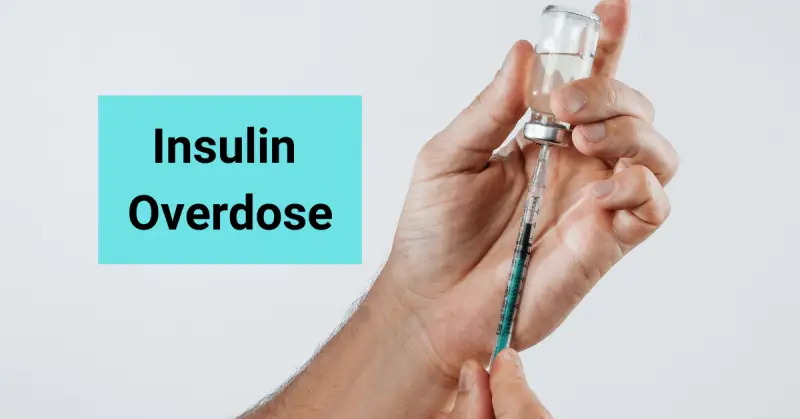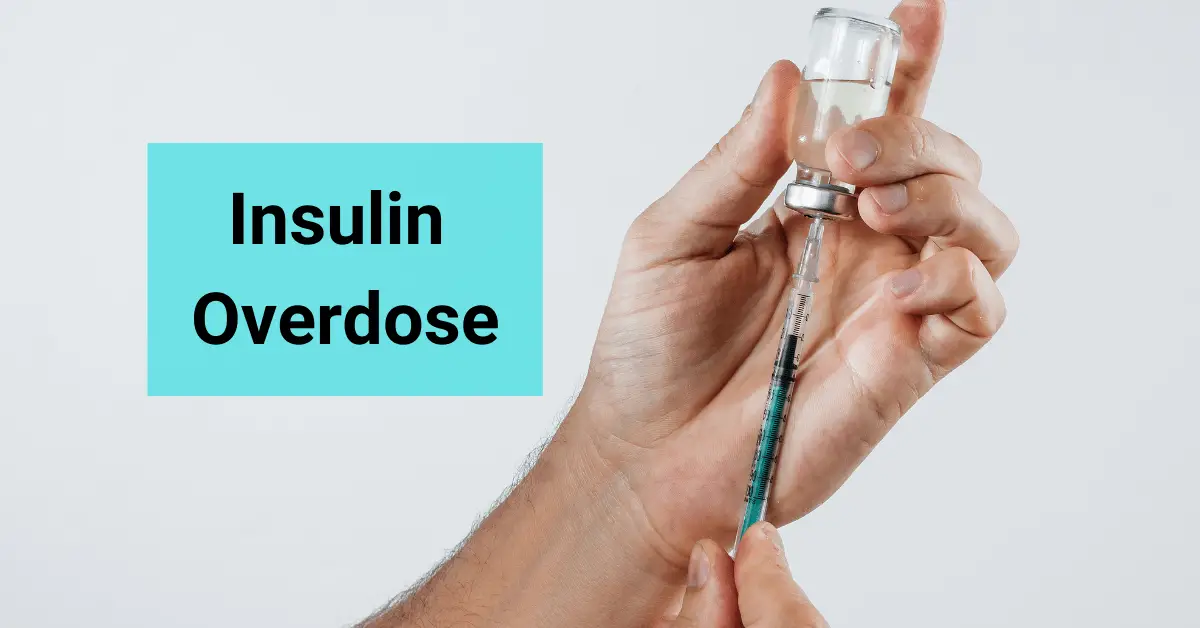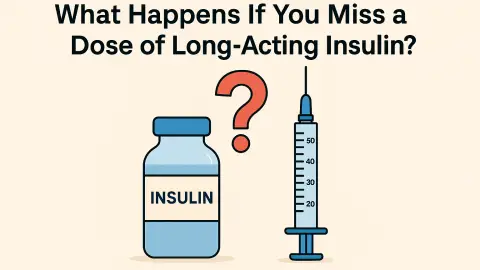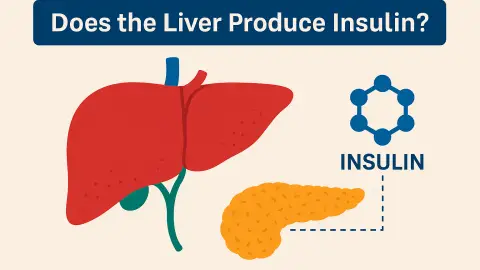Insulin is a life-saving hormone that plays a critical role in regulating blood glucose levels, especially for people living with diabetes. By helping cells absorb glucose for energy, insulin ensures that the body functions properly and prevents dangerous spikes in blood sugar. For many, regular insulin therapy is essential for maintaining health and avoiding long-term complications associated with diabetes.
However, taking too much insulin can lead to a serious and potentially life-threatening condition known as insulin overdose. When blood sugar drops too rapidly, the body may struggle to function normally, and a range of symptoms can emerge, from mild shakiness and sweating to confusion, seizures, or even loss of consciousness. Understanding the signs of an overdose is vital for timely intervention and safety.
The duration and severity of insulin overdose symptoms vary depending on several factors, including the type and dose of insulin, the individual’s overall health, and how quickly treatment is administered. Gaining insight into how overdoses affect the body, the warning signs to watch for, and the recovery process is crucial for anyone managing diabetes or caring for someone who does.
Understanding Insulin and Its Role

Insulin is a hormone produced by the pancreas that regulates blood sugar by allowing glucose to enter cells for energy or storage. For individuals with type 1 diabetes, the body cannot produce insulin, necessitating regular injections. People with type 2 diabetes may also require insulin when other medications fail to maintain proper blood sugar levels. While insulin is vital for survival, incorrect dosing can lead to severe hypoglycemia, which can be life-threatening.
The risk of an overdose arises when more insulin is administered than the body needs. This can occur due to miscalculation of doses, mixing up insulin types, accidental double dosing, or using insulin inappropriately. Symptoms of insulin overdose typically relate to the rapid drop in blood sugar, impacting brain function and physical performance.
Symptoms of Insulin Overdose
Early Symptoms
If an individual experiences an insulin overdose, early signs usually appear within minutes to a few hours, depending on the insulin type. Rapid-acting insulin, such as insulin lispro or aspart, may produce symptoms within 15–30 minutes, while longer-acting insulins, like insulin glargine, may show effects after several hours. Common early symptoms include dizziness, sweating, shakiness, hunger, and palpitations. These signs indicate the body is reacting to a drop in blood glucose, attempting to restore normal levels through hormonal responses like adrenaline release.
Moderate to Severe Symptoms
As hypoglycemia progresses, symptoms intensify and can involve cognitive impairment, confusion, blurred vision, headache, and difficulty concentrating. If untreated, severe hypoglycemia can lead to seizures, loss of consciousness, and even coma. Physical manifestations may include weakness, pale skin, rapid heartbeat, and irritability. The severity depends not only on the insulin type and dose but also on individual factors such as age, body weight, kidney function, and concurrent illnesses.
Factors Influencing Symptom Duration
The length of time insulin overdose symptoms last varies widely. One major determinant is the pharmacokinetics of the insulin involved. Rapid-acting insulin generally causes a brief but intense period of hypoglycemia, usually lasting 2–6 hours if untreated. Short-acting insulin can prolong symptoms for 6–8 hours, while intermediate-acting insulin may extend hypoglycemia to 12–18 hours. Long-acting insulin, such as glargine or detemir, can result in hypoglycemia lasting up to 24 hours or more, particularly if a large overdose is involved.
Other factors influencing duration include meal timing, physical activity, and the body’s glycogen stores. Eating carbohydrates shortly after insulin administration can mitigate hypoglycemia, while fasting or increased physical exertion can worsen and prolong symptoms. Individuals with liver or kidney impairments may also experience longer-lasting effects due to slower insulin clearance.
Mechanism Behind Prolonged Symptoms
Hypoglycemia from insulin overdose occurs because excess insulin facilitates the rapid uptake of glucose from the bloodstream into cells, depleting available energy. The brain relies heavily on glucose, and when levels drop too low, neurological symptoms emerge. The body attempts to counteract hypoglycemia through counter-regulatory hormones like glucagon and epinephrine, but these mechanisms may be insufficient if the overdose is significant.
In some cases, hypoglycemia can persist even after immediate intervention, especially with long-acting insulins. This is due to the prolonged action of the insulin remaining in the bloodstream. Continuous monitoring of blood glucose and repeated carbohydrate administration are often necessary to prevent recurrent hypoglycemia.
Immediate Treatment for Insulin Overdose
Oral Carbohydrates
For mild to moderate hypoglycemia, consuming fast-acting carbohydrates such as glucose tablets, fruit juice, or regular soda can quickly elevate blood sugar levels. It is essential to monitor glucose levels after consumption to ensure they stabilize and do not drop again, especially if long-acting insulin is involved. This approach typically resolves symptoms within 15–30 minutes in mild cases.
Intravenous Glucose
Severe cases or individuals unable to take oral carbohydrates require intravenous glucose. Medical personnel often administer a 50% dextrose solution followed by continuous glucose infusion to maintain normal blood sugar levels. This intervention stabilizes the patient while the body metabolizes the excess insulin.
Glucagon Injection
Glucagon is another treatment option that stimulates the liver to release stored glucose. It is particularly useful for patients at home who cannot consume carbohydrates orally. However, glucagon’s effectiveness is limited if liver glycogen stores are depleted, which can occur in malnourished or chronically ill individuals.
Recovery Timeline
The recovery from insulin overdose depends on multiple variables, including the type and dose of insulin, timeliness of treatment, and individual health status. Rapid-acting insulin overdoses may resolve within a few hours, while long-acting insulin can cause symptoms that last an entire day or longer. Even after initial treatment, patients often require ongoing glucose monitoring to prevent delayed or recurrent hypoglycemia.
Neurological symptoms such as confusion or weakness may persist slightly longer as the brain recovers from glucose deprivation. It is crucial to avoid further insulin administration until normal blood sugar levels are stable. Family members and caregivers should be informed about potential delayed effects, as repeated monitoring is necessary for safety.
Preventing Insulin Overdose
Prevention is the most effective way to avoid prolonged and dangerous symptoms. Careful measurement of insulin doses, double-checking injection types, and consistent blood glucose monitoring are fundamental practices. Patients should also receive proper education regarding the timing of meals, physical activity, and dose adjustments.
Using insulin pens or prefilled syringes with accurate dosing markings can reduce errors. Digital devices with reminders and dose calculators can help individuals track their insulin use, especially those managing multiple injections daily. Awareness of personal glucose patterns and potential interactions with other medications can further minimize the risk of overdose.
Complications of Untreated Overdose
If left untreated, insulin overdose can result in severe hypoglycemia leading to seizures, permanent brain damage, or death. Recurrent episodes of hypoglycemia can also contribute to a phenomenon known as hypoglycemia unawareness, where the body no longer triggers warning signs effectively. This makes future overdoses even more dangerous, emphasizing the importance of timely intervention.
Chronic complications may include cardiovascular stress due to repeated adrenaline surges, mood disturbances, and cognitive impairment. Prompt recognition and treatment not only shorten the duration of symptoms but also reduce the likelihood of long-term consequences.
Factors Affecting Individual Experiences
Individual responses to insulin overdose vary significantly. Age plays a major role, with elderly patients often experiencing prolonged hypoglycemia due to slower metabolism and reduced counter-regulatory hormone response. Children and adolescents may display rapid symptom onset but recover quickly once treated.
Body mass and nutritional status also influence how quickly glucose levels drop and recover. Underweight or malnourished individuals are at higher risk of prolonged hypoglycemia. Concurrent medications, liver function, kidney health, and existing medical conditions such as adrenal insufficiency can all extend symptom duration.
Monitoring and Follow-Up Care
After an insulin overdose, continuous monitoring is essential. Blood glucose should be checked frequently, especially overnight, to ensure levels remain within a safe range. Patients may need temporary adjustments in insulin therapy or dietary changes to stabilize blood sugar.
Healthcare providers often recommend a post-overdose care plan, which may include patient education, dose recalibration, and psychological support if the overdose was intentional. Regular follow-up ensures that future hypoglycemic events are minimized and that the patient regains confidence in managing their condition safely.
Mental and Emotional Considerations
Experiencing an insulin overdose can be traumatic. Anxiety about future injections, fear of recurrent hypoglycemia, and emotional distress are common. Counseling and support groups can be valuable for individuals and families coping with the aftermath. Proper education on insulin safety and emergency responses can empower patients and reduce anxiety associated with insulin use.
Home Preparedness
Preparedness at home is crucial for anyone using insulin. Keeping fast-acting carbohydrates, glucagon kits, and glucose meters accessible ensures a rapid response if symptoms arise. Family members should be trained to recognize hypoglycemia signs and administer treatment promptly. This proactive approach can significantly reduce the severity and duration of insulin overdose symptoms.
When to Seek Emergency Help
It is vital to recognize situations that require immediate medical attention. If a person becomes unconscious, experiences seizures, or fails to respond to oral carbohydrates, emergency services should be contacted without delay. Timely professional intervention is often the difference between a full recovery and serious complications.
Conclusion
The duration of insulin overdose symptoms depends on several interrelated factors, including the type of insulin, the dose taken, the individual’s metabolism, and how quickly treatment is administered. Rapid-acting insulin typically causes shorter-lived symptoms, while long-acting insulin can lead to hypoglycemia lasting 24 hours or more.
Immediate treatment with fast-acting carbohydrates, intravenous glucose, or glucagon can help stabilize the patient. However, ongoing monitoring is essential to ensure blood sugar levels remain safe and to prevent recurrence of symptoms.
Prevention remains the most effective strategy. Careful dosing, proper education, and preparedness are key to minimizing the risk of overdose. By understanding the risks, recognizing early warning signs, and taking prompt action, patients and caregivers can save lives and reduce the likelihood of long-term complications associated with insulin overdose.
FAQs About Insulin Overdose
What are the first signs of an insulin overdose?
Early signs of insulin overdose often include shakiness, sweating, rapid heartbeat, dizziness, and intense hunger. These symptoms occur as the body reacts to dropping blood glucose levels and tries to restore balance.
How long do insulin overdose symptoms typically last?
The duration depends on the type of insulin involved. Rapid-acting insulin usually causes symptoms for a few hours, while long-acting insulin can lead to hypoglycemia lasting up to 24 hours or more. Individual factors, such as metabolism, meal timing, and overall health, also influence symptom length.
Can insulin overdose be life-threatening?
Yes, severe insulin overdose can be life-threatening if left untreated. Extreme hypoglycemia can result in seizures, loss of consciousness, or even death. Immediate intervention with glucose or glucagon is critical to prevent serious complications.
How is an insulin overdose treated?
Treatment depends on severity. Mild cases may be managed with fast-acting carbohydrates, while severe cases require intravenous glucose or glucagon administration. Continuous monitoring of blood glucose is essential until insulin levels stabilize.
Can an insulin overdose happen by mistake?
Absolutely. Accidental overdoses can occur due to miscalculating doses, mixing up insulin types, double dosing, or not following prescribed instructions. Proper education, careful dosing, and using dose-measuring devices can reduce the risk.
What should I do if someone is experiencing severe hypoglycemia?
If a person is unconscious, having seizures, or unable to take food or drink, call emergency services immediately. Administer intravenous glucose or glucagon if available, and continue monitoring until professional help arrives.
How can insulin overdose be prevented?
Prevention includes accurate dosing, regular blood sugar monitoring, understanding insulin types and timing, keeping fast-acting carbohydrates on hand, and educating family members or caregivers on recognizing early symptoms.
Disclaimer: This article is intended for informational purposes only and should not be considered medical advice. Insulin overdose is a serious medical emergency. Always consult a healthcare professional for diagnosis, treatment, or medical guidance. If you or someone else experiences severe hypoglycemia, seek immediate medical attention. Following the information in this article without professional supervision may be dangerous.
References
- Mayo Clinic – Diabetic Coma: https://www.mayoclinic.org/diseases-conditions/diabetic-coma/symptoms-causes/syc-20371475
- CDC – First Aid: Poisoning: https://www.mayoclinic.org/first-aid/first-aid-poisoning/basics/art-20056657
- NIH / PubMed Central – Insulin Overdose Effects: https://pmc.ncbi.nlm.nih.gov/articles/PMC8955302/



